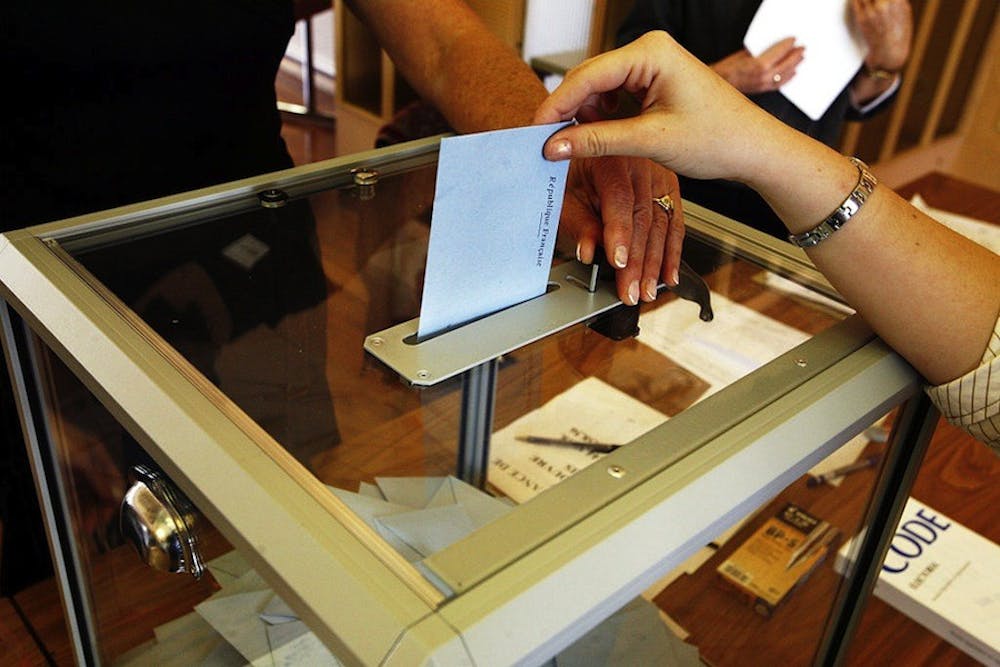On a recent episode of "This American Life," a podcast from NPR member station WBEZ, host Ira Glass discussed his concern for this election's effect on the future of journalism. Now, he explained, the expression of fact can be perceived conveyed as partisan while blatant lies can be accepted as truth.
"That's our country right now," Glass said. "And this is going to continue after this election, no matter who wins. This is the rest of our lives, I think, this post-truth politics."
Aspiring journalists like me are left to wonder -- once this election is over and the dust has cleared, what will be left?
The idea that people have become skeptical of authoritative news sources is alarming enough, but even more concerning is the fact that some people choose to believe articles with sensational listicle headlines like, "Five reasons Hillary Clinton should be in prison," which pop up on their social media feeds over articles printed in highly regarded, historically reputable newspapers.
Last Friday, FBI director James Comey announced that the bureau had uncovered additional emails which may be connected to their investigation of Clinton. Since the news broke, the polls have started to narrow significantly. At the time of publication, the political blog FiveThirtyEight's forecast shows Clinton has dropped to about a 65 percent chance of winning.
Trump has a feasible shot at the presidency. So what would a Trump presidency mean for the free press? Or, as Trump sees, it, the "biased liberal media" who tried to keep him out of the White House?
Much of Trump's campaign has been propelled by misinformation. His calls to "build the wall" and his hyperbolic language about the immigrants "pouring over" our Mexican border paint a very different image of immigration than the facts. According to information from the Department of Homeland Security, no such influx is occurring. A report recently released from the National Academy of Sciences provides 509 pages of research which argue that, overall, immigration is a positive source of growth for our country.
The GOP candidate has also threatened to sue The New York Times, the second-most circulated newspaper in the country and a highly regarded journalistic source, over an article in which two women described how Trump inappropriately touched them without consent.
As a public figure who's bragging words about groping women have already gone public, it's impossible that this story significantly changed his public reputation, which leaves no substance for a libel claim.
In a letter responding to a request from Trump's lawyer to retract the article, David McCraw, vice president and assistant general counsel for the Times, wrote, "It would have been a disservice not just to our readers but to democracy itself to silence their voices. We did what the law allows: We published newsworthy information about a subject of deep public concern."
Even though the alleged libel lawsuit wouldn't hold up in any court, it's still alarming that a major party presidential candidate would make such a claim.
But that doesn't seem to matter anymore. Yes, the trope of lying politicians is older than the Constitution, but the blatant dismissals of fact we've seen in this election -- those aren't normal. (See: Trump's claims that Hillary started the Birther controversy, Hillary's claim that nothing marked classified was either sent or received on her private email server.)
We have more facts available to us than ever before, and those facts have never been so easy to obtain. But facts mean less than they ever have before.
The Information Age has become the age of factual inflation. The more there are, the less they are valued. Perceptions now reign over data. Opinions are reactionary, not based on reality.
As information continues to expand exponentially, it's become extremely difficult to sift through the news quagmire for a clear answer: what is truth and what is fiction?
Despite how simple it is to pull out a mobile device and Google, "Is Obama a Muslim?" almost 30 percent of the population still thinks so. (He's a Christian, by the way.)
All politics aside, this is a concern for everyone. In a time when it's incredibly easy to tuck ourselves into information silos where everything we consume confirms our preexisting biases, it's more important than ever to defy that urge to resist dissonance in our news consumption.
A large part of my concern is also in the way that the election has been covered in the media. A study from Harvard Kennedy School's Shorenstein Center on Media analyzed news coverage of the 2016 presidential primary. The study shows that the coverage focused on the "horse race" of the contest over the issues. This approach, the study concluded, elevated Trump while helping to take down his opponents and comparatively ignoring the Democratic race.
The press doesn't favor candidates because they are part of some larger conspiracy, as Trump and many of his constituents have claimed. Their bias is based on a bottom line. These news outlets are businesses, and election coverage which favors drama over policy gains more views.
This larger problem of the media covering news with a click-bait mindset isn't new, but we're starting to see its serious implications. Now, more than ever, we need the free press. But we need the free press to continue to act in its intended role -- as a watchdog on the government, a gatekeeper for information, a trusted and nonpartisan informant.
willi501@miamioh.edu

